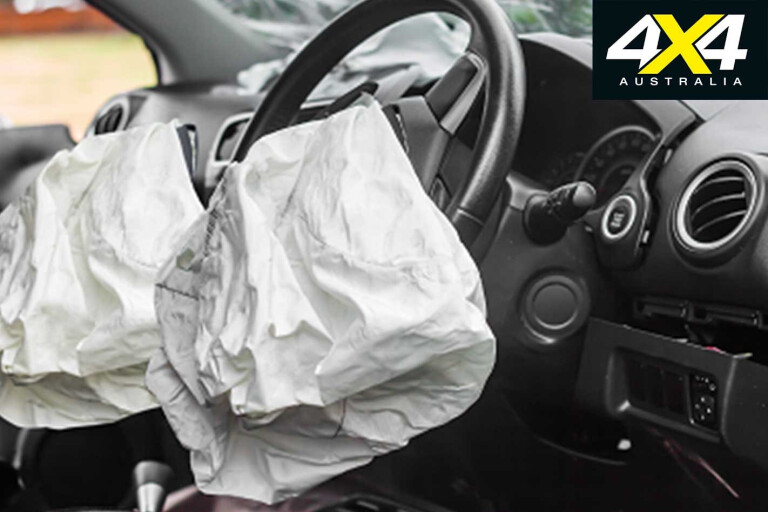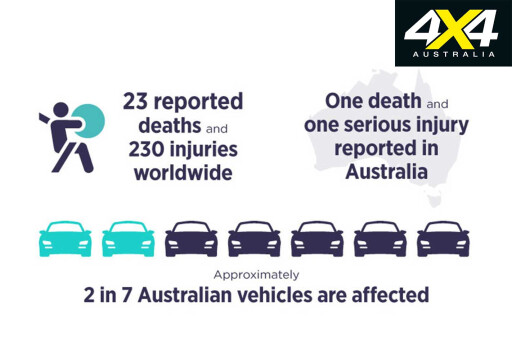
AN ACCC safety investigation has led to a compulsory recall of all vehicles with defective Takata airbags.
The compulsory recall means car manufacturers must chase down all vehicles already subject to existing Takata voluntary recalls, as well as 1.3 million affected cars which had not previously been issued for recall – no easy task considering manufacture dates range from 1999 to 2017.
Assistant Minister to the Treasurer, Michael Sukkar, issued the recall based on the evidence provided by the ACCC. He issued the compulsory recall for two reasons: the risk of injury and/or death; and the fact some suppliers haven’t taken satisfactory action.
Globally, Takata airbags have been responsible for 23 reported deaths and 230 injuries. In Australia, one person has reportedly died and one has been seriously injured.
 What’s causing the issue? The ACCC report stated: “Phase-stabilised ammonium nitrate (PSAN) airbags without a desiccant (or drying agent) or with a calcium sulphate desiccant have a design defect.
What’s causing the issue? The ACCC report stated: “Phase-stabilised ammonium nitrate (PSAN) airbags without a desiccant (or drying agent) or with a calcium sulphate desiccant have a design defect.
“Due to the defect, as the airbag ages and is exposed to high temperatures and humidity, the PSAN propellant is exposed to moisture and degrades.
“If this happens, when the airbag is triggered and deploys (in a collision), it may deploy with too much explosive force, rupturing the airbag inflator housing so that sharp metal fragments shoot out and hit vehicle occupants, potentially injuring or killing them.”
Alpha airbags – a subset of Takata airbags – pose the highest safety risk, and there are still 25,000 of the units yet to be replaced.
In regards to some manufacturers not taking the appropriate measures to fix the issue, the ACCC recall report said: “As at January 2018, the overall replacement rate for all voluntary recalls was only approximately 63 per cent of the total number of affected vehicles under voluntary recall in Australia.
“Replacement rates for individual suppliers conducting voluntary recalls varied significantly, ranging from between 36 per cent to over 84 per cent. Four suppliers had replacement rates of less than 50 per cent of vehicles subject to their voluntary recalls.
“Prior to the compulsory recall, however, not all vehicles with defective Takata airbags were recalled. Approximately 860,000 vehicles in Australia with defective Takata airbags were not under voluntary recall.”
The ACCC has now provided suppliers with a step-by-step guide that they must adhere to.
Owners of affected vehicles – check here if you’re unsure – are urged to contact their supplier as soon as possible. However, all suppliers should eventually be in contact with those affected.
Car manufacturers have until December 31, 2020, to amend the issue.



COMMENTS